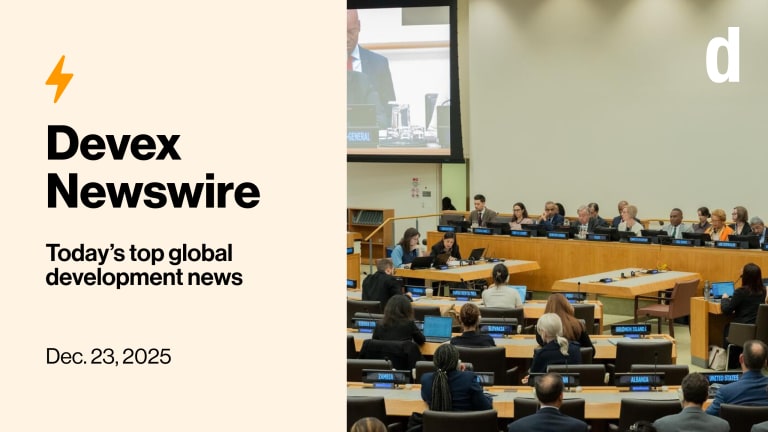
Remote work and equity are at the heart of contract negotiations — along with pay issues — between management and the newly formed union at the Millennium Challenge Corporation.
MCC has about 300 employees, and a return-to-work policy in 2022 helped spur the formation of the union. The worker group officially selected its leadership over the past six months and the formal bargaining process started in January. If negotiations stay on track, they should be wrapped up by July.
“While there are differing opinions, the process is collaborative and people are willing to work together and move forward together,” union President Terry Fletcher told Devex. The tone has been “largely collaborative.” The agency understands staff were frustrated and wants to address the concerns that gave rise to the union, within their constraints, he said.
“We are in the early days of working with them,” MCC Chief Executive Alice Albright recently told Devex. “We have a very constructive relationship with them. They’ve been very helpful in bringing to our attention some real concerns that staff have had about various things. We’re very grateful for what they’re doing and look forward to maintaining a good relationship with them.”
At this point, the union and management have put in place the ground rules for the negotiations and discussed the general contract language. The sticking points around remote work and pay will come up in the coming months, Fletcher said.
There has been progress on a revised remote work policy and the union and management are working on rollout plans, an MCC spokesperson wrote via email.
“We carefully considered employee concerns and worked hard to create an effective return to work policy that addresses staff and agency needs. That process was challenging, but MCC is committed to meaningful investment in our people,” the spokesperson said.
Fletcher is hopeful that the union and management can work together to come up with a “creative set of solutions that address the agency’s honest legitimate concerns” to have face-to-face collaboration along with union concerns about coming in and spending all day on Zoom calls.
“We’re trying to come up with a common sense policy” that will have people come into the office when they need to but will otherwise allow them the flexibility to work from home, he said.
Before the negotiation process, management made changes related to workload and compensation, which “resulted in pay band adjustments and other improvements,” the MCC spokesperson wrote.
Once-inactive US DFC union opens talks on new bargaining agreement
Reorganization spurs rapid union growth as employees seek to update 30-year-old contracts with current concerns.
The union has assessed various agency programs to see if marginalized groups are benefitting proportionally and looking to make recommendations that will improve equity, Fletcher said. It also seeks to reduce or eliminate the pay gap between men and women, white people, and people of color. Part of the strategy is pushing for objective and clear criteria across policies so there is less opportunity for unconscious bias, he said.
“There is a culture at MCC of coming up with good creative solutions to hard problems and people are approaching it with this mindset,” Fletcher said.








